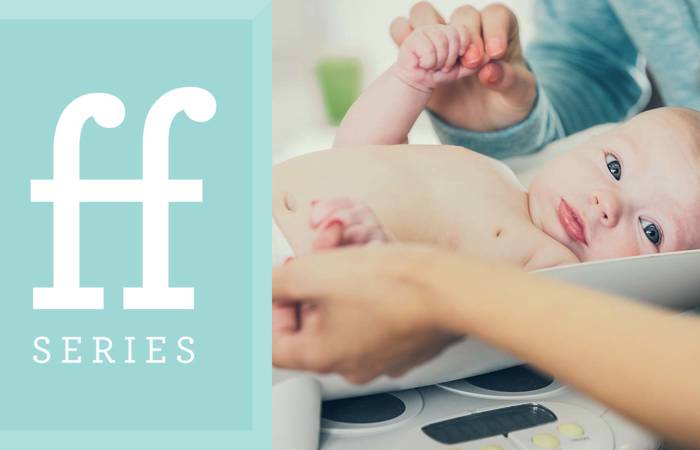Like what you see?
Sign up to receive more free parenting advice.
Thank you for subscribing to our newsletter!
Child Development

Credit: iStock.com/bernardbodo
While most twins can be expected to reach development milestones at roughly the same time as other children, researchers have found that there is no way of knowing for sure whether your twins will reach every milestone together.
Parents of twins can be unsettled if one child is walking or talking long before the other but it’s difficult to know when to start seeking advice or assistance.
Statistics show twins or higher order multiples can take longer to reach milestones, especially those born prematurely. With the average pregnancy usually lasting 40 weeks, if twins were born at 35 weeks, their progress and milestones will be monitored as though they were five weeks younger than they really are.
It’s best to not expect twins to reach milestones at exactly the same time. They’re more likely to reach milestones at a similar time if they’re identical, compared to fraternal, as everything has a genetic component.Associate Professor Jeff Craig
Deakin University’s Associate Professor Jeff Craig is an internationally recognised expert on twins and the President of the International Society for Twin Studies. He says while twins can be similar, they can also be quite different.
“It’s best to not expect twins to reach milestones at exactly the same time. They’re more likely to reach milestones at a similar time if they’re identical, compared to fraternal, as everything has a genetic component,” says Dr Craig.
“I heard a story recently about one twin’s tooth falling out the day before the other twin’s tooth did! So there’ll be a variety of stories when it comes to milestones so it’s best not to have too many expectations.
“When it comes to milestones like crawling and walking, even with singletons, the developmental paediatricians say there’s a wide range of when these milestones can happen. But it’s difficult to say exactly what governs that.”
The development of language in twins
The most documented developmental delay among twins is language development, which appears to be more common in multiple births.
The LOOKING at Language study, published in the Journal of Speech, Language and Hearing Research, took a close look at ‘late language emergence’ – that’s when a child’s language is below age and gender expectations (they might speak a few words but don’t join words together to form sentences).
The study found language delay was more common in twins – and particularly identical twins. It revealed twins have twice the rate of late language emergence than singleton children; 38 per cent for twins compared to 19 per cent for singletons.
In this study, 71 per cent of two-year-old twins were not combining words, compared to only 17 per cent of single-born children.
If one or both of your twins seems to be falling behind in speech development (not speaking at all by 18 months, for example), it’s important to discuss this with your doctor, who will probably refer you to a specialist.
When it comes to other milestones such as potty training, Dr Craig believes it’s wise of parents not to expect their twins to be ready at exactly the same time.
“Most identical twins will reach their milestones around the same time; fraternal twins will vary a little more. If one twin of a pair has special needs, this may cause differences in the time they take to reach milestones compared to their co-twin,” says Dr Craig.
“What’s very interesting is behavioural experts say if one child sees the other using a potty, then it might be the case that that will induce the other child to start. Sibling rivalry might also play a part. You’d think children would just copy each other but some children naturally hold back.
“As twins interact so much together I wouldn’t be surprised if that close psychological connection between twins brings them even closer than expected to the milestones. But every child is different and every set of twins is different too.
“I recently heard of twins where one has an autism spectrum disorder while the other twin doesn’t. So you’d imagine in that case one of the twins might take longer than average to develop certain milestones like speaking, but those are the exceptions rather than the rule.
“It’s knowing when those average milestones should be and, if there are any concerns, to see your doctor.”
Finding great advice on parenting twins
As if raising twins isn’t challenging enough, twin parents often have to deal with commentary from other parents, in a way those with singletons don’t usually encounter.
For example, twin parents might be asked “Why is Twin 1 walking and Twin 2 is still crawling?” or “Is there something wrong with Twin 1? She’s still wear a nappy but Twin 2 doesn’t?” And, many parents like to offer well-meaning advice.
Dr Craig says while it’s impossible to avoid the advice some parents might be offering, it’s probably not a great idea to take the advice of people that don’t actually have twins.
“Parents of twins hear so much commentary and advice from other parents and the best thing to do is only take advice from other parents of twins. It’s a good idea to talk to many twin parents so you’ll get a wide range of views, particularly when it comes to personal experience of milestones,” says Dr Craig.
“If they are worried, they should talk to their regular medical practitioner (GP or nurse) who can evaluate the twins together. The medical practitioner will decide whether to refer to a developmental paediatrician.
“The general advice a paediatrician will usually give in regards to milestones is to expect a large window of opportunity. But if you ever suspect one of the twins is taking too long to reach a milestone, make sure you see developmental paediatrician. That way you’ll get a real understanding.”







